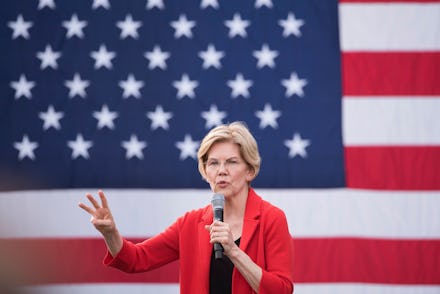After billionaire Robert Smith announced that he would be paying off Morehouse College graduates' $40 million student loans during their commencement ceremony, the student debt crisis once again gained national attention. Presidential candidate and Massachusetts Senator Elizabeth Warren used the moment to discuss her policy proposals to forgive 75 percent of all American's student loan debt. She tweeted about the policy on Tuesday, writing: "Share your stories using #CancelMyDebt and find out how my plan to cancel student loan debt for 95% Americans that carry it would impact your life."
One in four Americans owe money for their student loans, and the tweets that flooded the #CancelMyDebt tag certainly reflected that. According to Nitro, approximately 44.7 million people owe about $1.53 trillion in student loans. The debt has surpassed credit card debt and auto loans.
Whether the loan was for $60,000 or $180,000, many people discussed how the crippling monthly payments they made had little to no effect on the overall amount of money owed to their debtors due to predatory interest rates.
The cost of private and public education in the United States has ballooned since 1971, and while the price of education has risen, incomes have not.
For many people, the prospect of ever paying off student loan debt seems entirely unrealistic. As more people discuss the financial strain and limitations imposed by their student loans the crisis becomes less about the daunting numbers, and more about the way Americans are forced to live in a system that doesn't seem to be working for them.
Plans to cancel student debt aren't just altruistic; they may also have a dramatically positive effect on the economy. In a study published by Harvard Business School, student loan forgiveness was shown to create stronger consumers who are able to contribute to the economy.
“People with a lot of student debt are more fragile and they postpone other life choices, like moving, buying a house, or getting married,” one of the authors of the study, Harvard Business School Associate Professor Marco Di Maggio, said. "Helping people out with their loans allows them to make better decisions.”
